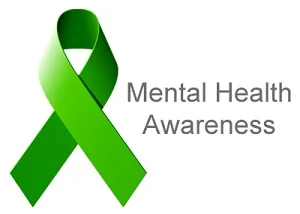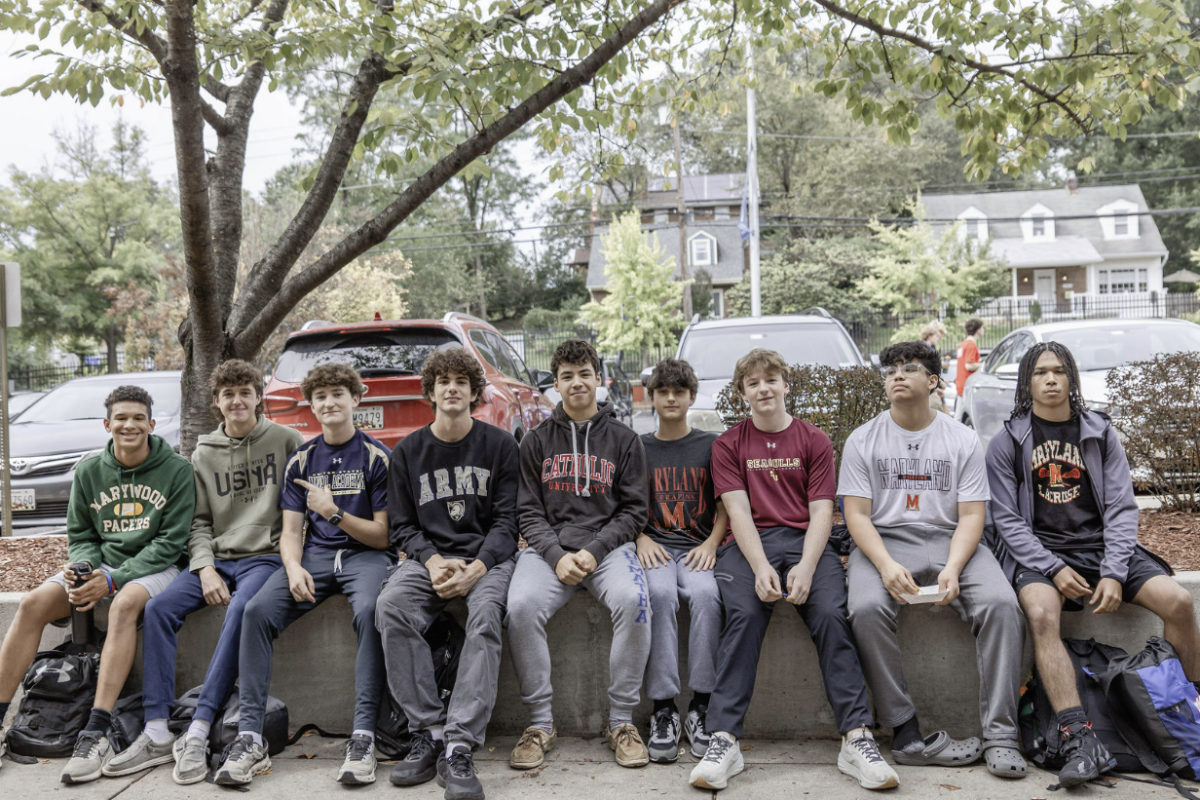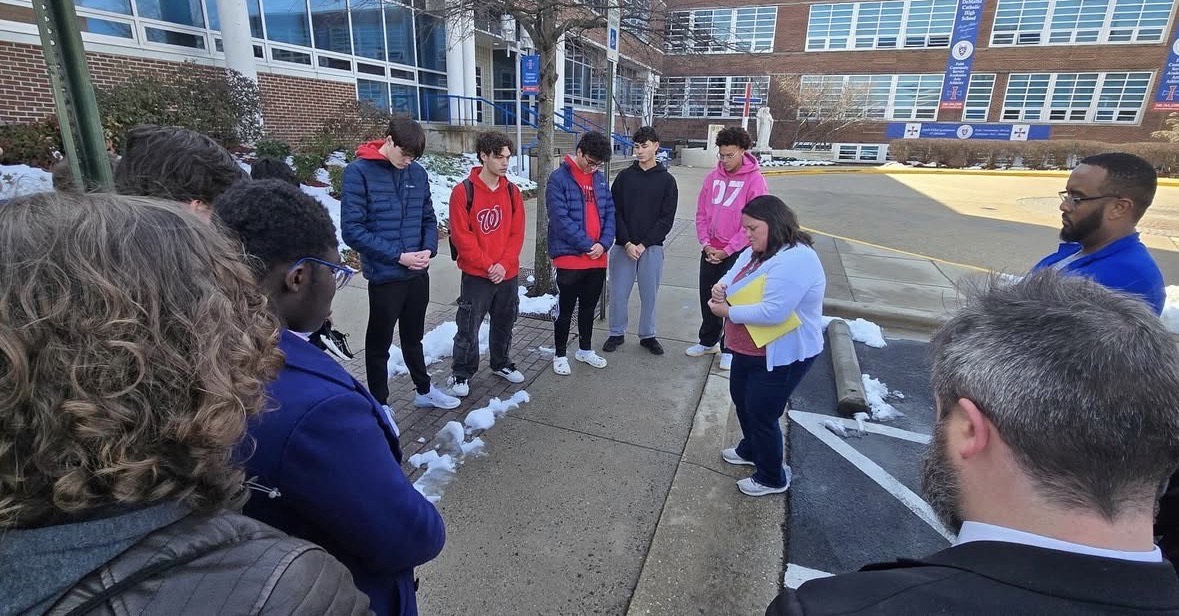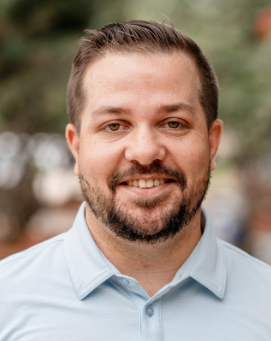Mental Health Breaks: What is Their Purpose?

March 18, 2022
“One deep breath in, one deep breath out.”
Starting at the beginning of Lent, DeMatha’s Campus Ministry Office decided to institute mental health breaks for students and faculty. In the post-Covid world, more students, and really people in general, are suffering from anxiety and depression than ever before.
The cause of students’ negative emotional states can be hard to pinpoint, as every student and person is different and has their reasons for feeling the way they do. But with more people out of jobs due to the pandemic, and more families struggling to provide for themselves, it is not hard to see why suicide rates have increased over the last couple of years while more people experience persistent states of sadness and hopelessness.
In response to the mental health crisis that seems to be sweeping the nation, DeMatha’s Campus Ministry Office has come up with the idea to implement several mental health checks throughout the school week. The mental health checks occur while students are present in class, with a faculty member over the loudspeaker helping students relax and momentarily forget about whatever is bugging them at the moment.
The mental health breaks last around five minutes, with a faculty member leading students through various breathing and relaxation exercises. The goal of implementing these new breathing and relaxation techniques is to help give students strategies for managing their own mental health.
So with several mental health breaks having occurred since Ash Wednesday, do students feel that they have been productive and helpful? And what was the Campus Ministry Office’s goal in instituting mental health checks throughout Lent?
Mrs. Erin Bright, head of campus ministry at DeMatha, helped come up with the idea to institute mental health breaks for students at school. Mrs. Bright stated that the motivation behind instituting mental health breaks came from the unfortunate uptick in mental health issues seen at DeMatha. Mrs. Bright pointed out that part of the faculty’s job at the school is “to create healthy students spiritually and emotionally,” and she believes that the new mental health breaks will be a step in the right direction.
“Father Josh and I talked about how we could combine our understanding of faith and spiritual health with emotional health,” Mrs. Bright said. She noted how the challenge of balancing personal faith and mental health has been something that both she and Fr. Josh have experienced, and she acknowledged how challenging this balance could be to properly manage.
Mrs. Bright also talked about the challenge of instituting a school-wide mental health session, since, admittedly, “everyone is at a different place in terms of their willingness to discuss their own mental health.” She agreed that what might work for one student may not work at all for another, as everyone has certain habits or practices to help reduce their own anxiety or sadness.
Help for mental health can be difficult on an individual level, so trying to find methods that could suit hundreds of high school students was far from easy. This challenge induced Mrs. Bright to look for methods that have been scientifically proven to help relieve anxiety or stress for a large number of people, and her research led her to several breathing techniques to reduce anxiety and stress.
Mrs. Bright says that, ultimately, the goal is for the school to continue with mental health breaks even after the Lenten season, and she noted how the school is even open to trying other techniques and practices to improve mental health. “We would like to make mental health more a part of the DeMatha experience as we move forward,” she said.
Senior Luke Kelly thinks that the idea behind the mental health breaks is good, but he is unsure of how effective they will ultimately be. “For me, I feel like the breaks are probably a little too short for them to be completely effective,” Luke said, “although I understand that the administration does not want to cut into too much class time.”
Even though he is uncertain about the effectiveness of these short mental health breaks, Luke commended the Campus Ministry Office for attempting to improve the mental and emotional state of their students. “We are at a time in our nation when many people are dealing with mental and emotional problems, in large part due to the losses caused by Covid-19, so it’s very encouraging to see the school make an effort to try to induce more positivity among their students.”
Luke noted the difficulty of getting high school students aged 14-18 to pay attention and participate in breathing exercises, but he believes that over time students will become more willing to participate and, hopefully, more willing to speak about their mental health. “The important thing is for students to feel more comfortable talking about their mental health, and I think that this effort by the Campus Ministry Office certainly counts as positive movement towards that goal.”
Luke thinks that the mental health breaks could be a first step towards a more permanent change to prioritize students’ emotional well-being. “As time goes on, the school will find out about more techniques to help relieve anxiety and stress and I think, hopefully, students will become more receptive to these mental health practices, because ultimately the school is only trying to help their students.”
Mr. Theodore Garrett, teacher at DeMatha and member of the school’s counseling center, spoke about the increasing importance of mental health in today’s society. Mr. Garrett mentioned the effects of virtual learning and quarantining on students, as the deprivation of social interactions seemed to have an undoubtedly negative effect on students as time went on.
“What was alarming was when we noticed that students who had been performing at a high level were suddenly starting to slip,” Mr. Garrett said. “This dramatic change in results demanded the attention of the counselor’s office and we started to brainstorm solutions to this complicated issue as students returned to in-person learning.”
The counseling center has worked tirelessly this school year to provide help for those struggling with mental health issues, and Mr. Garrett feels that this new measure will work to alleviate some of the problems the school has seen this year.
Mr. Garrett acknowledged the reluctance of many students to discuss their mental health, saying that “it takes a certain level of honesty and effort” to discuss mental health with others. Although it can be difficult, Mr. Garrett wants students to know that in order for them to feel better, effort has to be given to improve their mental and emotional state, and sometimes that involves acknowledging one’s wrongdoings and faults.
Overall, DeMatha’s faculty and student body simply want what is best for the school. Nobody has all the answers to the problems being faced, but that doesn’t mean that the school can’t work together to try to find ways to improve the emotional state of students and faculty. However one feels about the effectiveness of the new breathing techniques being used in mental health breaks, one cannot deny the fact that the school is making an effort to make their students happier.





















